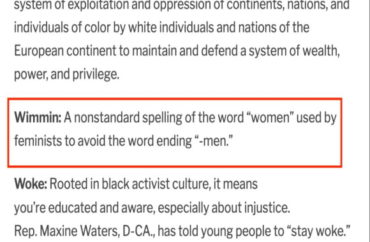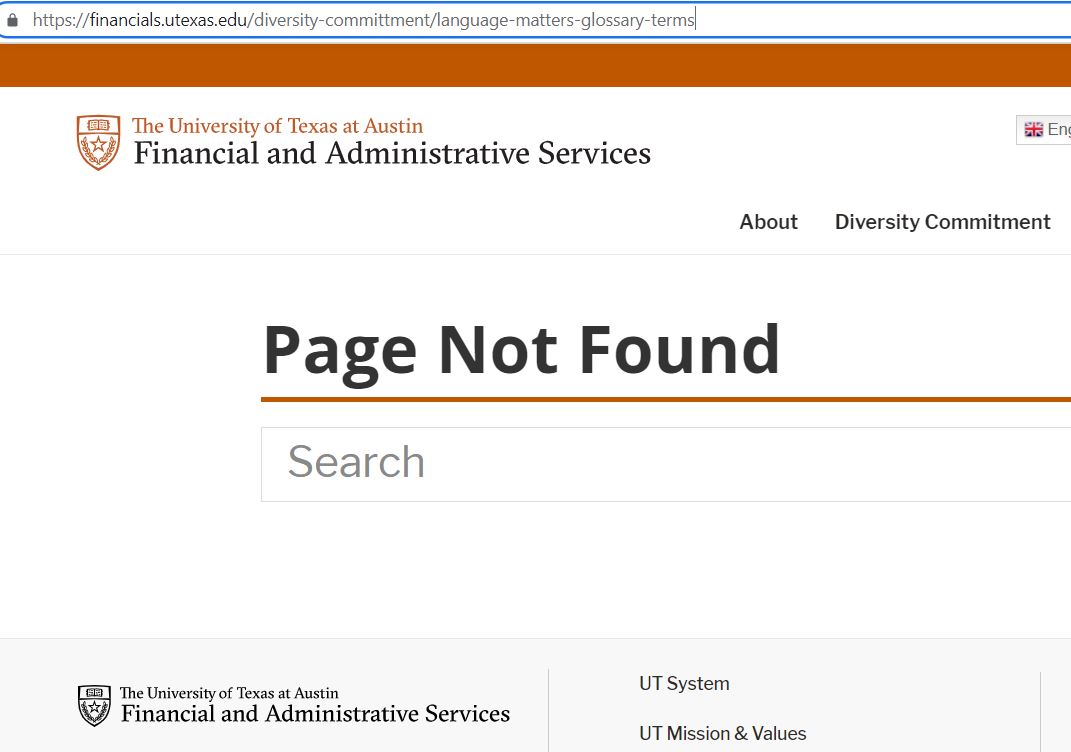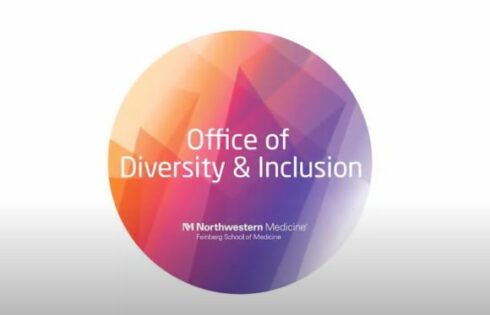
University quickly scrubs glossary after it’s highlighted by education activist Christopher Rufo
The University of Texas at Austin on Tuesday took down a diversity, equity and inclusion glossary of terms that included the word “wimmin,” prompting the institution to receive some attention and backlash for it.
The glossary, created by the Office of Financial and Administrative Services, was highlighted by conservative education activist Christopher Rufo on Tuesday morning, who tweeted: “The University of Texas is now promoting the word ‘wimmin,’ so that students and faculty can ‘avoid the word ending in ‘-men.” According to UT, this is empowering.”
The glossary stated: “Wimmin: A nonstandard spelling of the word ‘women’ used by feminists to avoid the word ending ‘men.'”
Four hours later, Rufo tweeted: “After I caught them recommending the word ‘wimmin’ in place of ‘women,’ University of Texas administrators have removed their ‘Language Matters’ guide from the university website. Unfortunately for them, I’ve archived the page and will report more next week.”
The University of Texas is now promoting the word "wimmin," so that students and faculty can "avoid the word ending in '-men.'"
According to UT, this is "empowering." pic.twitter.com/E6ef5MsI2T
— Christopher F. Rufo
(@realchrisrufo) May 2, 2023
The College Fix attempted to load the URL — https://financials.utexas.edu/diversity-committment/language-matters-glossary-terms — but it came up as “page not found.”

UT Austin’s media affairs division could not immediately be reached for comment by The College Fix on Tuesday evening asking why the glossary was so quickly taken down.
An NBC news station in San Antonio reported on the glossary before it was taken down as well. News4sanantonio.com reported:
The Office of Financial and Administrative Services at the university lists a glossary of terms on a webpage embedded within its “Diversity Commitment,” denoting them all as “language [that] matters.” Among the terms listed are “Wimmin,” “Womyn” and “Womxn,” which the glossary says are all alternatives to the traditional spelling of the word “Women.”
The glossary provides a little more detail when explaining what “Womxn” means, arguing it is an alternative used “to get away from patriarchal language.”
But the preceding explainer describing what “womxn” means does concede that while the term is meant to be inclusive, “it is not always accepted.”
“Some say the word has evolved and is divisive, and ‘women’ is more inclusive in the LGBTQ+ community,” the glossary adds, linking to a women’s health blog that cites a “medieval historian specializing in gender and sexuality” who calls criticism of “womxn’s” usage “a very white thing.”
In addition to its alternatives to the term “women,” the University of Texas — Austin’s glossary of terms also includes some other politically charged verbiage and acronyms such as “TERF,” “AFAB/AMAB” and “FTM.”
“TERF: ‘Trans Exclusionary Radical Feminist’ refers to feminists who are transphobic,” the glossary explains.
Other acronyms in the glossary include “AFAB/AMAB: Assigned Male/Female at Birth, and may or may not still identify or express themselves with this gender,” and “FTM: ‘Female-to-Male Spectrum’ is used to describe people who are assigned the female gender at birth but identify or express their gender as a male all or part of the time.”
UT-Austin is not the first university to take down a DEI glossary of terms after it drew criticism.
Stanford University’s 13-page “Elimination of Harmful Language Initiative,” which advised against saying dozens of innocuous words and phrases, prompted nationwide outrage and ridicule.
It was taken down from public view and placed under review by administrators earlier this year. The controversial language guide had warned against using the term “American.”
MORE: Stanford announces review of ‘harmful language’ guide that warned against ‘American’
IMAGE: UT Austin / Chris Rufo
Like The College Fix on Facebook / Follow us on Twitter






Please join the conversation about our stories on Facebook, Twitter, Instagram, Reddit, MeWe, Rumble, Gab, Minds and Gettr.